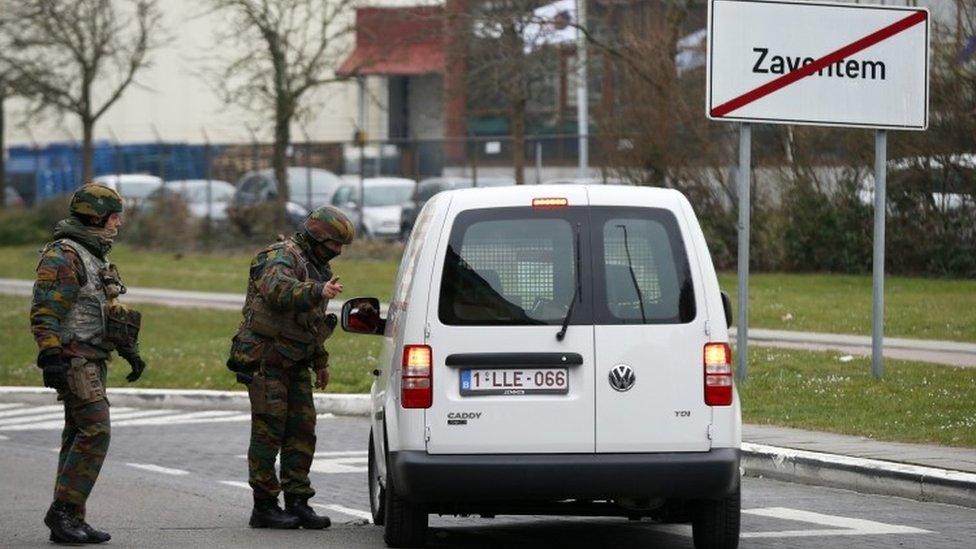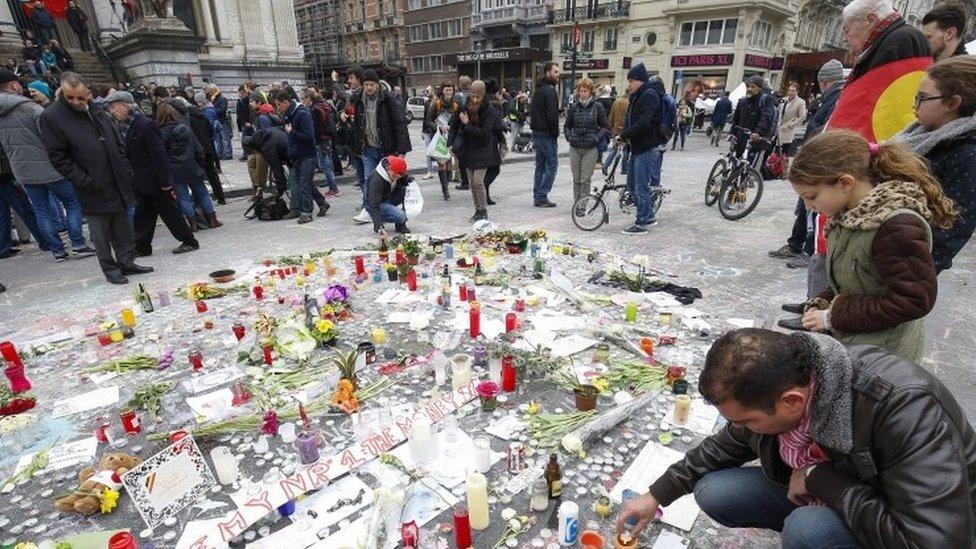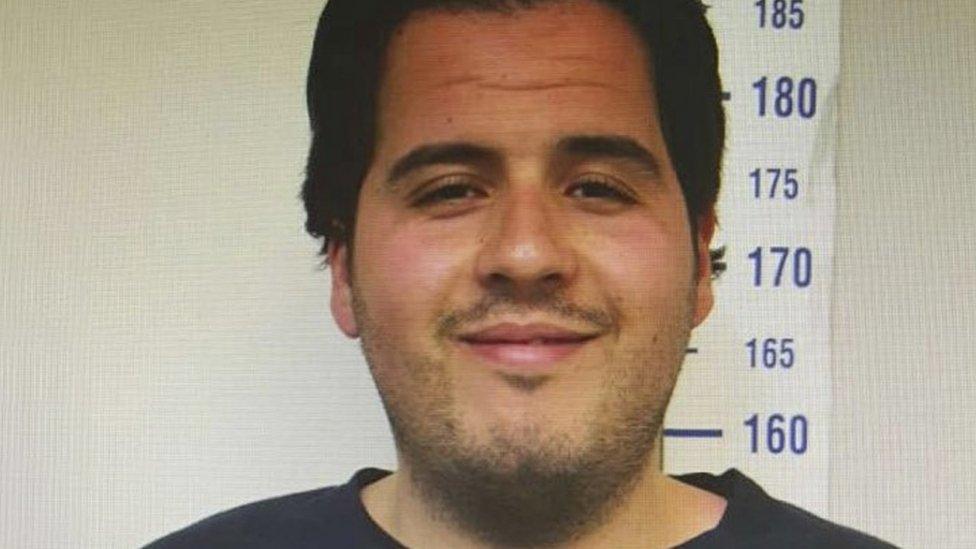Brussels attacks: Why Europe missed warning signs
- Published

The Brussels bombings exposed the vulnerability of publicly accessible places in airports, metro stations and other transport hubs
Europe now knows it is facing a network of inter-linked cells of violent extremists on a scale it has never had to deal with before.
"It is more extensive perhaps than we first feared," admitted Europol Director Rob Wainwright, in an interview with the BBC.
He spoke of "what is clearly a new strategy" being implemented by the so-called Islamic State (IS) group.
"To take us on in a more aggressive way, to use teams of well-trained, well-planned terrorists to carry out multiple attacks aimed at mass casualties."
Ever more urgent, therefore, is how European governments choose to respond.
More about the attacks
The immediate investigation into the attacks in Brussels this week is obviously a top priority. But so too is long-delayed work at the political level to improve the sharing of data and intelligence.

European leaders are calling for urgent action to prevent a repeat of the misery caused by the Brussels bombings

Turkey said on Wednesday that Brahim el-Bakraoui was expelled to the Netherlands after being picked up near the Syrian border
The direct links being established between the attacks in Paris in November, and the suicide bombings at Zaventem airport and on the Brussels metro, point to failures in the system that need to be addressed swiftly.
And the revelation from Turkey that it deported one of this week's bombers Brahim el-Bakraoui in July 2015, and told the Dutch and Belgian authorities that he was a dangerous militant, is deeply troubling.
The full facts of the case have not yet emerged, but Belgian Justice Minister Koen Geens told VRT television last night that at the time el-Bakraoui was considered to be a "common criminal".

Connections are emerging between the men who carried out the Brussels airport and metro bombings and the Islamist cell behind the Paris attacks last November, in which 130 people died
Nevertheless, the Belgian prosecutor's office confirmed on Thursday that a warrant was issued for his brother, Khalid, in December, for renting a flat in Charleroi used ahead of the Paris attacks. Khalid el-Bakraoui blew up the metro train at Maelbeek.
For some reason, it appears that Belgian authorities only became alarmed about links between the el-Bakraoui brothers and IS terrorism in the past few weeks.
By then it was too late to stop them committing mass murder. But signs warning of the danger were clearly missed.
Disparity in resources
Part of the problem in Belgium in particular is a multi-layered, squabbling political system, in which information and responsibility for taking decisions often falls through the cracks.
But there is also a huge disparity in resources between different countries in Europe when it comes to fighting terrorism.
Until very recently, Belgium's intelligence agency had just 600 staff, about a third of the number of the neighbouring Netherlands - a country that is not much bigger and has fewer home-grown jihadists who have gone to fight in Syria and Iraq.
The Belgian authorities did announce an additional €400m ($446m; £315m) in spending on security capabilities after it emerged that Brussels had been the main base for the Paris attackers last November.
There has also been close co-operation between Belgium and France in the aftermath of those attacks.
But many officials say far more needs to be done to deepen co-operation across Europe in the fields of information and intelligence sharing.
Some countries simply are not up to the task, and others sometimes withhold their most closely-guarded data.
"There is a shortage of trust between member states," the EU's Home Affairs Commissioner, Dimitris Avramopoulos, told the BBC. "The 'deep state' resists and we must change this attitude.
"I know it is not easy to start thinking in a more European way, but it is a must."
Mr Avramopoulos argued that progress had been made over the past year - with the directive on firearms for example. On the other hand, there still appears to be a thriving black market in weapons in Belgium, and that has to change.
The French government called for a series of measures to be implemented across Europe in the wake of the Paris attacks. They have not yet been adopted.
High on the list is the need for an effective system for the sharing of airline passenger data - the "passenger name record" that has become entwined in a debate about civil liberties.
But the Brussels bombings exposed the vulnerability of publicly accessible places in airports, metro stations and other transport hubs. We have seen it before in London and Madrid, and the risk can never be eliminated entirely.
Europe as a whole faces a new challenge to which it is scrambling to respond.
"A war has been declared against us," said the French Prime Minister Manuel Valls in Brussels this week. "Our determination must be total."